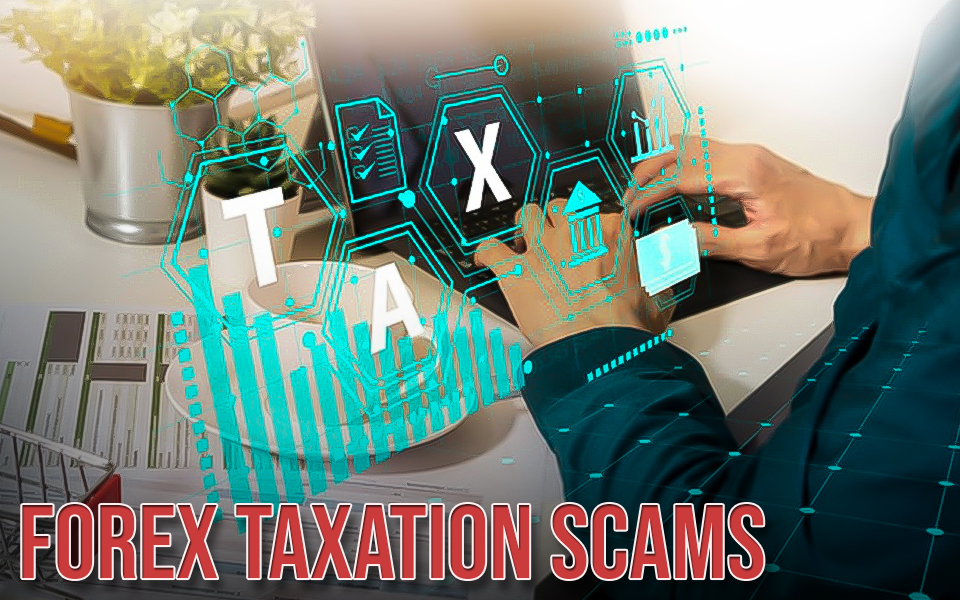


Navigating the world of forex trading involves adhering to its rules and responsibilities, and one critical aspect that traders must address is forex taxation. While meeting tax obligations is an integral part of responsible trading, it is crucial to remain vigilant about potential risks and scams associated with forex taxation. In this article, we explore the realm of forex taxation scams, providing insights into prevalent deceptive tactics that aim to exploit unsuspecting traders. By familiarizing yourself with these scams, you can enhance your protection, ensure compliance with tax regulations, and safeguard your hard-earned funds.
In the United States, forex traders are indeed required to pay taxes on currency exchange profits. Forex trading is considered a business, making the profits taxable. This applies not only to U.S. citizens but also to traders residing in the United States who trade with foreign brokers. The income earned from forex trading is considered taxable income when converted into U.S. dollars. Similarly, losses can be considered deductible expenses. Additionally, when forex traders sell a position that has decreased in value due to market volatility or other factors, they may potentially be liable for capital gains tax.
When it comes to reporting forex tax, it is crucial to adhere to certain guidelines. Firstly, ascertain your tax status by determining whether you qualify as a trader or an investor based on your trading frequency and the duration of currency holdings. Subsequently, compile essential documents such as trading statements and bank statements to substantiate your forex income calculations. Calculate the gains and losses derived from your forex activities, using the currency of your country of residence for accurate assessment.
Lastly, meticulously complete the requisite tax return form, ensuring precise reporting of forex income while considering any applicable deductions or expenses as per the tax regulations governing your jurisdiction. Besides a deep insight into taxation of foreign exchange gains and losses for individuals, adhering to these formal procedures guarantees the appropriate reporting of forex tax obligations.
When it comes to claiming forex losses on taxes, it is important to understand the process. Forex losses can be deducted from forex gains to determine the net gain or loss. If you have a net loss, it can be used to offset other income or gains, potentially reducing your overall tax liability. However, there are certain factors to consider. In the United States, forex trading falls under the category of “Section 988” transactions for tax purposes. Under Section 988, forex traders have the option to either treat their trading gains and losses as ordinary income or capital gains/losses.
If you choose to report forex trading as ordinary income, you can deduct your losses as ordinary losses, which can offset other forms of income, such as employment income or business income. This can potentially result in a lower tax liability. On the other hand, if you opt to report forex trading as capital gains/losses, you can use your forex losses to offset capital gains in other investments. Capital losses can also be carried forward to future tax years, allowing you to potentially reduce taxes on future capital gains.
Understanding the different types of taxes relevant to forex traders is crucial, as it helps determine the tax implications and the chances of encountering scams. The following are the typical tax categories that apply to forex traders:
Forex trading income is subject to personal income tax, taxed at a higher rate than regular salary income. The chances of scams in this category are relatively low, but traders should be cautious of fraudulent brokers or platforms that may deceive or manipulate trades.
Companies engaged in forex trading are liable to pay corporation tax on their profits. Scammers targeting forex traders in this regard may attempt to deceive businesses with false tax obligations or fake tax authorities.
Traders who make profits on their forex investments may be subject to capital gains tax upon selling their assets. While the chances of scams directly related to capital gains tax are minimal, traders should remain vigilant against fraudulent investment schemes or illegitimate trading platforms.
In the United States, the stamp duty reserve tax is imposed on certain financial contracts denominated in foreign currency. Scammers may attempt to exploit this tax by creating false transactions or misleading traders regarding their tax obligations.
To avoid scams related to forex taxation, it is crucial to be well-informed and take necessary precautions. Educate yourself about the forex taxation laws and regulations in your country, staying updated on any changes. Consult with qualified tax professionals who specialize in forex taxation for accurate advice and compliance. Beware of unrealistic promises that guarantee tax evasion, as scammers often use such tactics. Protect your personal and financial information by sharing it only with trusted platforms and professionals.
Stay informed about common forex taxation scams, be cautious of unsolicited communications, and verify their legitimacy. If you encounter suspicious activities, report them to the relevant authorities to contribute to combating financial fraud.
Additionally, if you have been a victim of a scam, it is advisable to seek the assistance of a fund recovery company. Zecoup is proficient in helping individuals recover their funds from fraudulent schemes.
We have expertise in dealing with financial scams and can provide professional advice and support throughout the recovery process.
By following our guidelines and considering our assistance, you can better protect yourself against scams and navigate the complexities of forex taxation more effectively. Remember to always comply with tax laws and fulfill your obligations as a responsible forex trader.
The tax amount forex traders pay varies based on their country, income level, and specific tax laws. Forex trading profits are generally considered taxable income, subject to the individual's personal income tax rate.
While it is important to fulfill your tax obligations, there are legal strategies you can employ to potentially minimize your tax liability on trading income. These strategies may include utilizing tax-advantaged accounts like IRAs or 401(k)s, offsetting gains with losses, taking advantage of tax deductions and credits, structuring trades in a tax-efficient manner, and consulting with a tax professional to ensure compliance with tax laws while optimizing your tax position.
Being a forex scammer means engaging in fraudulent activities within the forex market to deceive and defraud traders for personal gain, often through false promises, manipulation, and unethical practices, resulting in financial harm to victims.
If you have fallen victim to a forex broker scam, it is advisable to consider engaging the services of a reliable fund recovery company. Such a company, Zecoup is skilled at assisting individuals in recovering their funds from fraudulent brokers and providing valuable support throughout the recovery process. With our expertise and legal guidance, you can significantly enhance the likelihood of successfully reclaiming your lost funds.
Within the United States, individuals engaged in forex trading can categorize their losses as ordinary losses, enabling them to claim deductions for these losses on their tax returns.
Reclaim Your Lost Funds Now! Contact Zecoup and Get the Assistance You Need to Recover from Forex Taxation Scams. Take Action Today!
